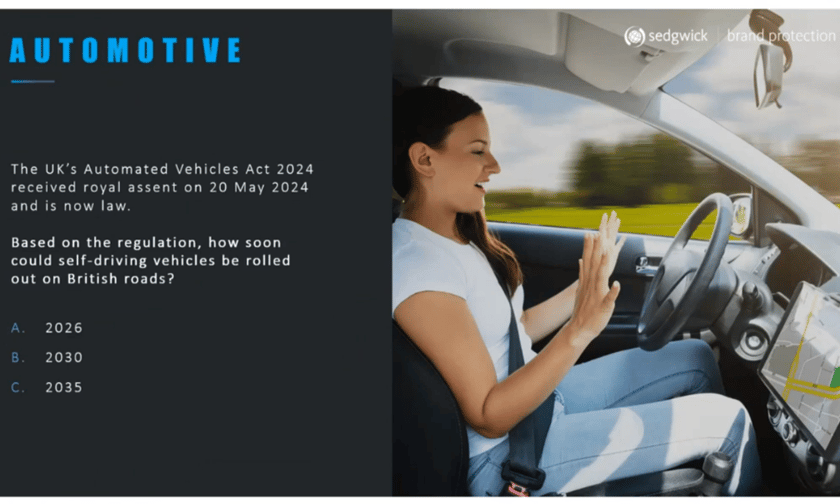

The latest ‘European Recall Index’ report from Sedgwick has revealed several concerning market trends, marking the fifth consecutive quarter that Europe saw over 3,000 recalls. With 7,011 product recalls logged in the first half of the year alone, Europe is on track to see record-breaking recall activity in 2024.
Recalls in the automative sector came under the spotlight in the report, having increased 9.3% across the EU and the UK from Q1 to Q2 2024, with the number of events rising from 162 to 177. In a webinar discussing the report, Rachel Quinn, senior account handler at Sedgwick explored some of the statistics shaping today’s automotive industry, and outlined that there were 136 recalls linked to injuries in Q2 2024, making it the leading recall cause across the sector. This was up from 125 events in the previous quarter.
The second most common cause for recalls was fire, which was linked to 17 events – while the combination of industry, burns and fire was the third most common cause with 10 recalls. “Passenger cars was the most common product category recalled in Q2 of this year,” she said. “There were 105 incidents, down from 107 the previous quarter. All light commercial vehicles, including passenger vans, were the second most recalled product with 19 events. Motorcycles [came in at] 14 recalls, up from eight in Q1.
“The UK issued the most notifications in Q2, with 82, and also for the whole first half of the year, with 148. Germany had the second most alerts in Q2 with 56 and France submitted 17 notifications in Q2 putting it in third place, a considerable increase from only eight in the last quarter.”
Mark Buckingham, a recall consultant at Sedgwick, noted that the report was based on data collected from safety regulators and government agencies across the European Union and included information on regulatory actions. With that in mind, the question for many across the market is how the regulatory landscape will impact the automative industry going forward.
The UK’s Automated Vehicles Act 2024 received royal assent on May 20, 2024, and, based on the regulation, self-driving vehicles could be rolled out on to British roads as soon as 2026.
Meanwhile, the UK and the EU are advancing plans to implement robust charging networks for electric and alternative fuel vehicles - and regulators are looking to instill confidence in drivers that charging ports will be readily available when drivers make the switch to alternative fuels. Added to that, the sale of new internal combustion engines will be banned by 2035. However, Chris Occleshaw, international product recall consultant at Sedgwick, highlighted that not all electric vehicles (EVs) are being embraced by lawmakers.
“The EU has imposed provisional tariffs of up to 38% on imported EVs made in China,” he said. “The European Commission said that the subsidies that the Chinese government gives its domestic automakers creates an unfair economic advantage for European manufacturers. Since Chinese vehicles are typically less expensive for EU consumers, taking the vehicles off the domestic market could hurt the adoption of EVs across the EU and hinder the government's zero emission goals.”
The potential impact of proposed EU tariffs on Chinese-made vehicles is a matter of concern for players all across the automotive supply chain. The overriding question is how significant this impact might be for the market and Sedgwick believes it could be “really significant”. Chinese brands’ share of the EU market has risen from less than 1% in 2019 to roughly 8% now, Occleshaw said, and it is projected to reach 15% in 2025. “However, several EU member states have close ties to the Chinese market, and would also be hurt by the higher duty fees, and there is a risk that Chinese officials might impose their own tariffs on EU-made vehicles that are sold or produced in China.”
As part of Sedgwick’s reporting into recall trends, its index included exclusive insights from experts across the legal regulatory sectors. On the automotive side, Ed Turtle and Julia Maskell from the law firm Cooleys highlighted the new EU batteries regulation which entered into force last year and are now being phased in.
“The new reforms will affect the design, performance, labelling, supply chain, traceability and reporting requirements for batteries that are sold in the EU,” Occleshaw said. “So, therefore stakeholders will need to ensure that they understand the new obligations and how they impact the businesses and make any design and labelling changes without delay.”
